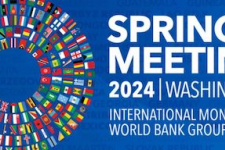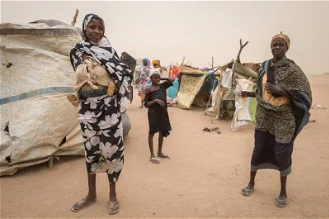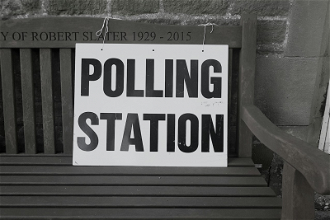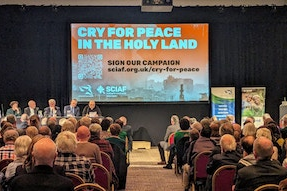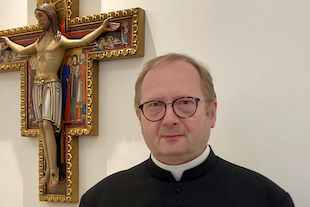CAFOD says more humanitarian aid must go to local partners
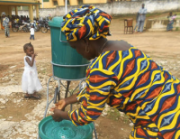
CAFOD handwash facility, Guinea
CAFOD, was at the first-ever World Humanitarian Summit in Istanbul this week. Governments, UN agencies, and nearly all the big international aid bodies were represented, but CAFOD spoke up for the unsung NGOs in the countries where most humanitarian aid money is spent.
"In any natural disaster or emergency, it is these local partners who are first on the scene," said Anne Street, CAFOD's Head of Humanitarian Policy. "Their members understand the local culture better than anyone else, and they will carry on when the foreign experts and the television cameras have departed."
"The recent Ebola crisis in West Africa is an excellent example of the effectiveness of working through local NGOs. If Ebola has largely been contained, though not completely eradicated, much of the credit is due to the timely action of local workers and volunteers," said Anne Street.
"Yet the amount of funding currently channelled directly to local partners by international humanitarian bodies is astonishingly small: just 0.2 per cent."
CAFOD supports Charter4Change, which calls for the proportion of aid money going to local bodies to be increased dramatically. The target is 20 per cent by 2018.
Kenyan NGO Adeso has endorsed the Charter4Change. Adeso Director, Degan Ali, said: "Local NGOs are taking the risks, are the first responders, are the innovators. But we are persistently sidelined - in Nepal, in Philippines and in a grotesque way in Haiti."
"Without money, without funding, we are so constricted. We are told persistently that the main issue is risk aversion, accountability, corruption. But you can't do risk management without funding," said Degan Ali.
International aid organisations can feel pressure to do everything themselves, so that they can gain publicity, do more and grow even bigger. CAFOD argues that they should put money and effort into training local partners, helping them to reorganise and develop their capacity to manage on their own.
"Once that is achieved, local NGOs must be allowed to work without having to answer constantly to a variety of foreign donors, all of whom have their own reporting standards and accounting requirements," said Anne Street, Head of Humanitarian Policy at CAFOD. "Proposals to accomplish this will be put before the Istanbul summit."
The Charter for Change is an initiative, led by both National and International NGOs, to practically implement changes to the way the Humanitarian System operates to enable more locally-led responses See: charter4change.org.



